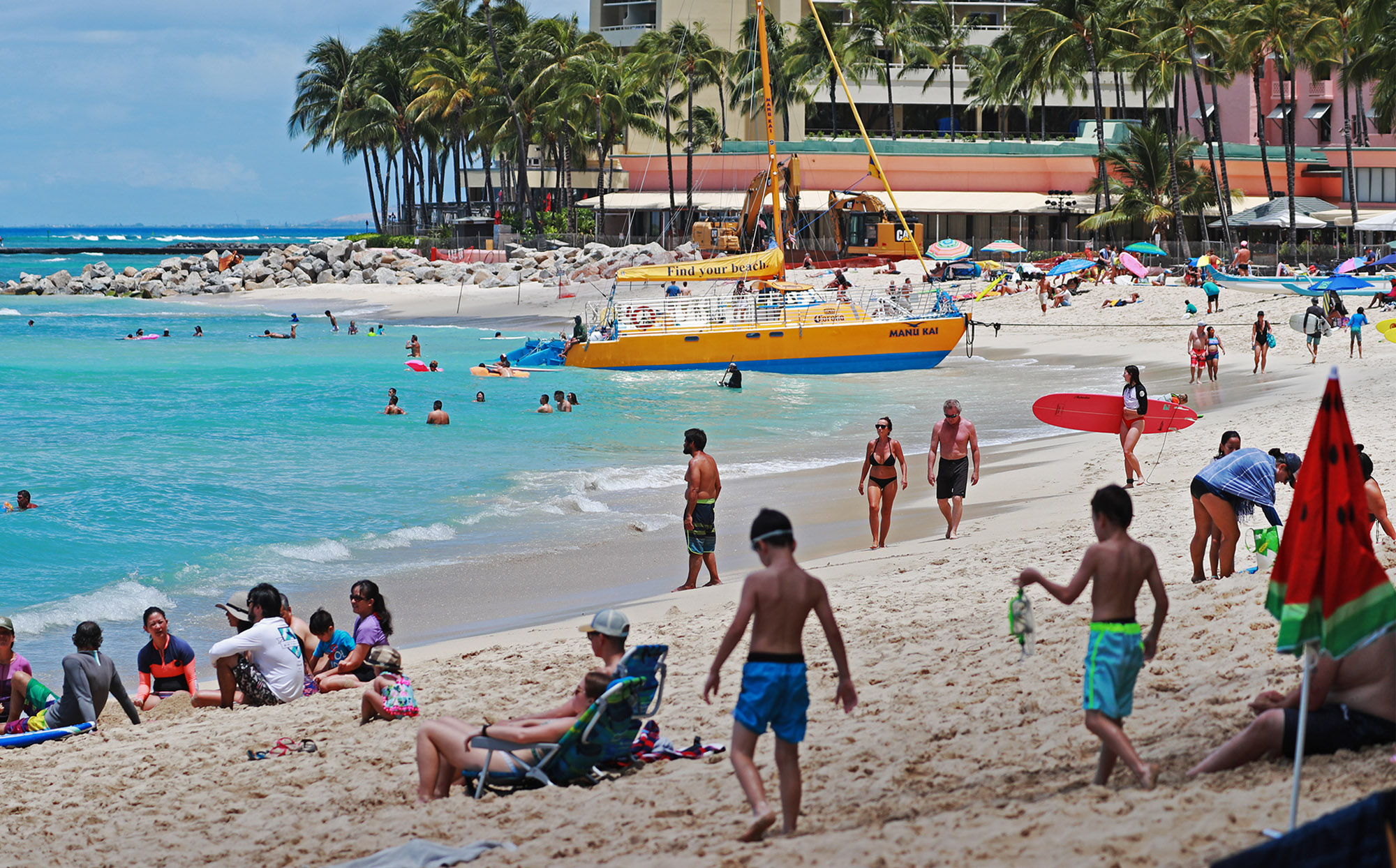
After that, Miscovich and his staff, including two of his adult children, traveled to Maui and the Big Island, then back to Oahu. Working directly with the mayors, they pitched their tents anywhere that could accommodate large numbers of cars—public parks, community centers, boat harbors and the huge soccer complex where, in gentler times, my son played games every weekend. Miscovich didn’t test everyone who showed up, but his net was far wider than what the department of health was recommending.
“Part of the beauty of the drive-through was that we got to talk face-to-face with almost 45,000 people,” Miscovich says. “We answered their questions and told them when they needed to be tested. We told them, ‘Just because you might test negative doesn’t mean you don’t have to come back if you develop symptoms.’ At least four of our positives initially tested negative, but when they coughed four days later, they came back to get a test.” He also set up roughly 40 testing sites for private employers, nursing homes and homeless camps.
So far, Miscovich and his team have done 17,000 tests, about a quarter of the state’s total, including nearly a quarter of Hawaii’s positive results. In March and April, when Hawaii’s cases were building, his tests accounted for almost half the state’s total tests and 40 percent of its positives. In late March, Hawaii ranked seventh in the nation for per capita tests. (Today, with a relatively low caseload, it ranks near the bottom.)
While they didn’t see eye to eye, Miscovich’s work effectively fed into Park’s: Each new case he identified was one more that she and her team could trace, isolating people and breaking the chain of transmission. But Miscovich wasn’t about to leave it up to the department of health. He says he personally called each of his positive patients, and then his staff showed up to test their whole family and, in some cases, friends and co-workers. In early April, to handle the increase in cases, he rented office space, hired 20 additional employees and had two dozen phone lines installed, so his patients and their contacts could be called and monitored daily. Miscovich says he has funded these efforts and the public drive-throughs with his own money, a total of about $500,000, half of which he has since gotten back from insurance companies.
What’s remarkable about Hawaii’s success is how much of it was driven by Miscovich’s and Park’s determination. David Ige, the state’s two-term Democratic governor, has not gotten high marks from the public for his response to the virus—perhaps because some of his remarks at press conferences left residents confused; in one case, he reversed course on rules about when businesses could reopen. In a Civil Beat poll released in late May, only 20 percent of respondents expressed a positive view of the governor, compared with 69 percent for Green, the lieutenant governor, who emerged as one of the state’s most vocal leaders on Covid-19.
While Ige told me he credits the state’s early start on contact tracing for suppressing the caseload and mitigating the health impacts of the pandemic, he acknowledges that private testing, by Miscovich as well as at some hospitals, played an important role. He also called his decision to implement the 14-day quarantine rule for arrivals—which the state imposed on March 25, along with its stay-at-home order—“strategically and fundamentally important.” But unlike New Zealand, which carted all of its arriving travelers off to designated hotels, Hawaii didn’t have an airtight system; several dozen visitors have been arrested for frolicking on the beach or otherwise ignoring the quarantine rules.
Ige seemed most animated when he brought up another factor he deemed important: the sense of community and responsibility for which Hawaiians are known. In Hong Kong, health officials kept tabs on the infected and potentially infected with electronic medical bracelets, and Singapore made sure people stayed at home with a phone app that verified their location. In Hawaii, the state relied on the spirit of aloha. “Maybe it’s because we’re on an island, but people here understand that what we do impacts our neighbors and friends,” Ige said, in the relaxed tone he is known for. “People took the mandates to stay at home and self-isolate seriously, and they encouraged each other to implement it.”
Source: politico.com
See more here: news365.stream






